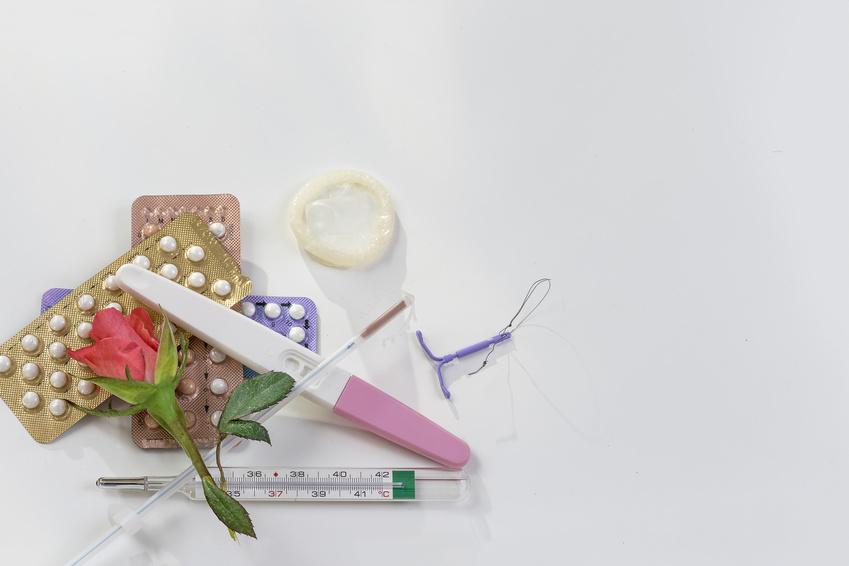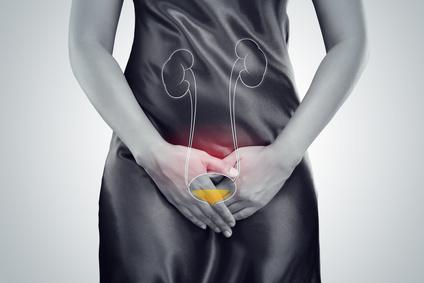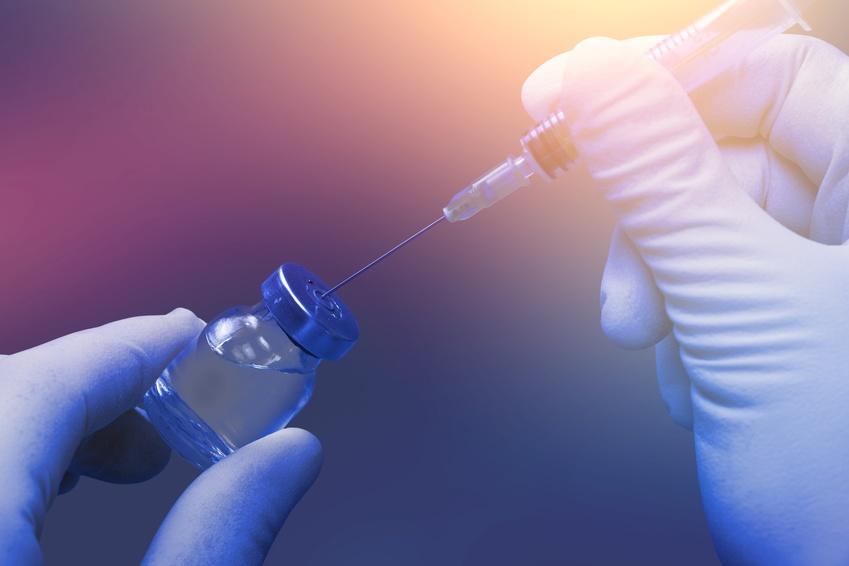Gynecology
A gynecologist is a specialist in the prevention and treatment of diseases of the female reproductive system.

With what symptoms should you go to the gynecologist?
- pains in the lower abdomen
- very painful periods
- heavy menstrual bleeding
- irregular menstrual cycles
- acyclic spotting
- discharge
- vaginal itching and burning
- chest pains
- too early or delayed puberty
- problems getting pregnant
- pain and/or bleeding during or after intercourse
- vaginal dryness
- side effects of hormonal contraception
- pregnancy symptoms
Despite the symptoms that may occur, it is recommended that every woman undergo preventive gynecological examinations at least once a year.
Cryotherapy of the cervix is one of the most effective methods of removing the so-called erosions of the cervix and warts from the vulvar area. It is widely used in gynecology because cryotherapy can be performed on an outpatient basis. During the procedure, the gynecologist freezes the damaged tissues using a special apparatus that uses liquid nitrogen.
The purpose of cryotherapy is to treat non-cancerous lesions of the cervix. Very low temperatures, down to minus 196 degrees Celsius, are used to destroy damaged cells. This method does not impair the functionality of the uterus. Tissue samples may be taken for histological examination prior to cryo if indicated.
Contraindication to the procedure is the lack of a current cytological test result (valid for 1 year), current inflammation of the reproductive organ, pregnancy, cervical dysplastic changes and cervical cancer.
Pessary therapy is an effective method of treating reproductive organ prolapse disorders, urinary incontinence and cervical insufficiency, thanks to the use of vaginal devices (pessaries) of various shapes and sizes.
This method significantly increases comfort, is characterized by little interference in the body and ensures long-term effects.
However, it is extremely important to see a doctor as soon as possible in order to identify the cause of the problems. A quick response can mean avoiding more invasive treatments.
Sono-HSG - ultrasonographic hysterosalpingography, is used to assess the condition of the fallopian tubes and the uterine cavity. The test detects obstruction of the fallopian tubes and abnormalities in the structure or shape of the uterus, which may cause difficulties in getting pregnant or maintaining it. Sono-HSG is an effective and safe diagnostic method.
When is Sono HSG indicated?
The examination is performed to detect possible abnormalities in the shape or structure of the uterus and obstruction of the fallopian tubes. In the diagnosis of infertility, this is an important step towards explaining its causes. The unusual structure of the uterine cavity and obstructed fallopian tubes can be the main obstacle to getting pregnant.
What are the contraindications for performing the test?
- pregnancy
- bleeding or spotting
- inflammation of the genitals
- contraindications for contrast administration using the X-ray technique
Contraception Methods of contraception can be natural, hormonal, chemical and mechanical. Each has a different function and purpose.
For a given method of contraception to be safe and effective, the woman's age, health, needs, beliefs and attitudes must be taken into account. Learn about the pros and cons of different methods of contraception, talk to a specialist about them.

- The IUD is inserted into the uterine cavity. It can have a different shape and structure, depending on the type. IUDs are also called "spirals" because that's the shape they had at the beginning of their production.
The hormonal IUD has its undoubted advantages.
The most important of them are:
- high efficiency - Pearl index at the level of 0.1-0.2;
- the hormonal IUD reduces the intensity of menstruation and shortens it, it can also reduce the pain experienced during menstruation;
- the insert does not impair the quality of intercourse - it is completely undetectable by partners during intercourse;
- the hormonal IUD can be used by women who are breastfeeding and those who have recently given birth;
- it is a very convenient method of contraception - a woman wears it once and does not have to control it as often as in the case of contraceptive pills.
⇒ MIRENA LEAFLET
⇒ KYLEEN FLYER
- Subdermal implant - contains a slow-release progestogen, is implanted under the skin in the upper arm of the non-dominant hand. The implant releases a hormone that enters the blood through the surrounding tissues and is then distributed throughout the body. Implants last from 6 months to 5 years. Implant placement is a surgical procedure. The implant can be placed on any day of the menstrual cycle, provided that pregnancy has been excluded. Contraceptive protection exists from the moment the implant is inserted, if it is inserted within the first seven days of the menstrual cycle, and if the implant is inserted at any other time, an additional method of contraception must be used for 3 days.
Advantages:
- highly effective, long-term, reversible method of contraception;
- quick return of fertility after discontinuation of the method, which allows for quite accurate pregnancy planning;
- not related to the sexual act;
- can be used while breastfeeding;
- no estrogen-related side effects;
- the implant can be removed at any time
Urinary incontinence laser treatment- Surgical treatment is always associated with the possibility of certain complications. Patients who care about a minimal and relatively safe procedure can use the innovative method of laser treatment of stress urinary incontinence. Laser treatment is aimed at women with stress urinary incontinence. The procedure consists in introducing a laser beam into the vagina, directed at such areas as the vestibule, anterior wall and bladder outlet, which will cause photothermal and non-ablative contraction of the vaginal walls. In addition, laser therapy stimulates the growth of collagen fibers of the mucous membrane, which are responsible for the elasticity of the vaginal walls. |  |
Is it possible to completely eradicate stress urinary incontinence with a laser?
The available statistical data show that in 90% of treated patients with mild stress urinary incontinence the effects of laser therapy are very good, while in moderate symptoms the therapeutic effect of the procedure is achieved in about 75% of women. However, everything depends on the collagen fibers and their structure.
Cytology - is also called a cervical smear. It is the basic prophylactic examination of women. Thanks to it, 60-80% of cases of invasive cervical cancer, which is fully curable at an early stage, can be prevented. Pap smear test is recommended for all women of reproductive age, as well as teenagers who have started sexual intercourse. Importantly, the first cytology should be performed no later than 3 years after the first intercourse, the cytology also allows to determine infection with the human papilloma virus (HPV) , which is related to this cancer.
Human papillomavirus (HPV) - Human papillomavirus infection is one of the most common sexually transmitted infections (although there are other ways of transmitting this infection).
The development of cervical cancer can take up to several years. For this reason, it is easy to detect with regular colposcopic and pap smear tests. Virological tests are also performed.
A characteristic feature of HPV infection of the vulva, vagina and cervix is the lack of specific symptoms.
HPV viruses are divided into:
- low-oncogenic (associated with a low risk of cervical cancer); this type of viruses in both women and men cause benign papillomatous lesions of the genitals, the so-called genital warts. This group of viruses includes e.g. HPV types 6, 11, 13, 30, 32, 34, 40, 42, 43, 44, 53, 54, 55, 57, 61, 62, 64, 66, 68, 69.
- high-oncogenic (associated with a high risk of cancer); these viruses are also associated with other rarer cancers, such as cancer of the vagina, vulva, or anus (sometimes of the tongue or throat). High-oncogenic viruses, including types 16, 18, 31, 33, 35, 39, 45, 51, 52, 56, 58, 59, 67.
Gardasil 9 - 9-valent human papilloma virus vaccine
What is Gardasil 9 and what is it used for?
Gardasil 9 is a vaccine used in men and women aged nine years and older to protect against the following diseases caused by the nine types of human papillomavirus (HPV types 6, 11, 16, 18, 31, 33, 45, 52 and 58):
- precancerous lesions (growths) and cancers of the cervix, vulva, vagina and anus;
- genital warts.
How to use Gardasil 9?
Gardasil 9 is a suspension for injection that is available in vials or pre-filled syringes.
 | Gardasil 9 is usually given on a three-dose schedule to men and women over 15 years of age. With a three-dose regimen, the second dose is given two months after the first and the third four months after the second. There should always be at least one month between the first and second doses, three months between the second and third doses, and all doses should be administered within one year. It is recommended that subjects who receive the first dose of Gardasil 9 complete the dosing schedule. The vaccine is given as an injection into a muscle, preferably in the muscles of the shoulder or thigh. |
http://www.poradnikzdrowie.pl/seks/antykoncepcja/contraceptive-methods-natural-chemical-mechanical-i-hormonal_33797.html

contact
Address
-
- ORSMED
Przemysław Gliszczyński, Agnieszka Gemba spółka jawna
ul.Przemysłowa 3,
89-600 Chojnice
- ORSMED
Opening hours
-
- Mon - Fri: 9:00 AM - 6:00 PM
- Sat: 9:00 AM - 1:00 PM